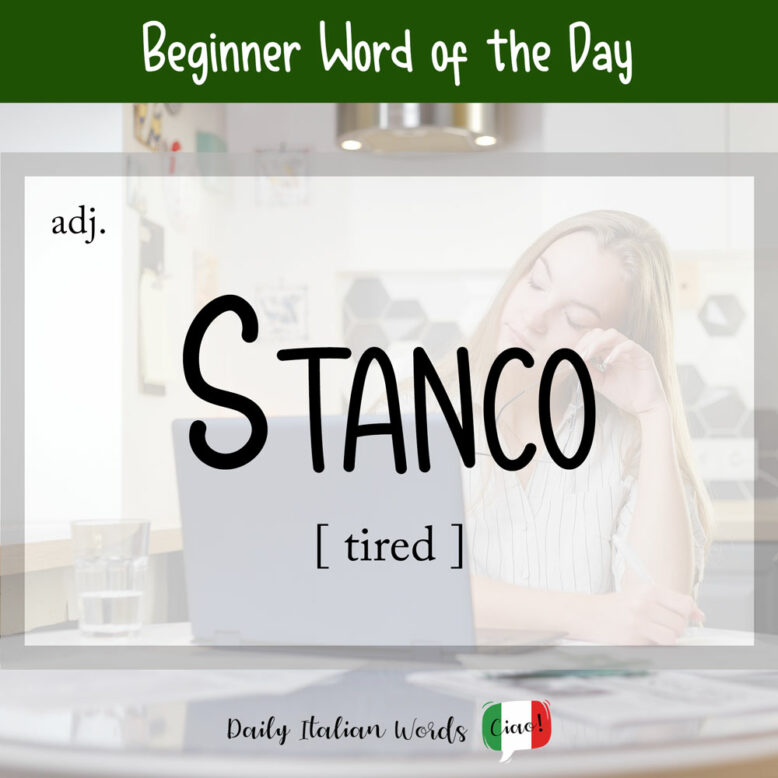The word for tired in Italian is stanco. It is derived from the verb stancare meaning to tire or to wear out.

The feminine and plural forms of stanco are as follows:
- stanca (feminine, singular)
- stanchi (masculine, plural)
- stanche (feminine, plural)
To say that you feel tired in Italian, you can use the expression mi sento stanco.
Mi sento molto stanco oggi quindi non vado in palestra.
I feel very tired today so I’m not going to the gym.

It is impossible to learn the word stanco without also picking up the reflexive verb stancarsi, which can be translated as either to get tired or to tire oneself out.
Ieri mi sono stancato dopo una lunga passeggiata.
I tired myself out / got tired yesterday after a long walk.
A very common expression in Italian is stanco morto which literally translates as dead tired. It is often used in situations where we would say exhausted in English.
So far, we’ve talked about tiredness due to physical or mental exertion but just as in English, stanco (as well as its close synonym stufo) can also be used to say that you are tired of / fed up with something.
Sono stanco di sentire le tue scuse.
I’m tired of hearing your excuses.
Figuratively speaking, it is also a way of describing a writer, poet or artist who has lost his or her creative force, or a work of art that is dull and devoid of originality.
Additionally it can refer to the worn-out appearance of a deteriorated book cover (copertina stanca), a sluggish market (mercato stanco), or overused soil (terreno stanco).
Heather Broster is a graduate with honours in linguistics from the University of Western Ontario. She is an aspiring polyglot, proficient in English and Italian, as well as Japanese, Welsh, and French to varying degrees of fluency. Originally from Toronto, Heather has resided in various countries, notably Italy for a period of six years. Her primary focus lies in the fields of language acquisition, education, and bilingual instruction.


